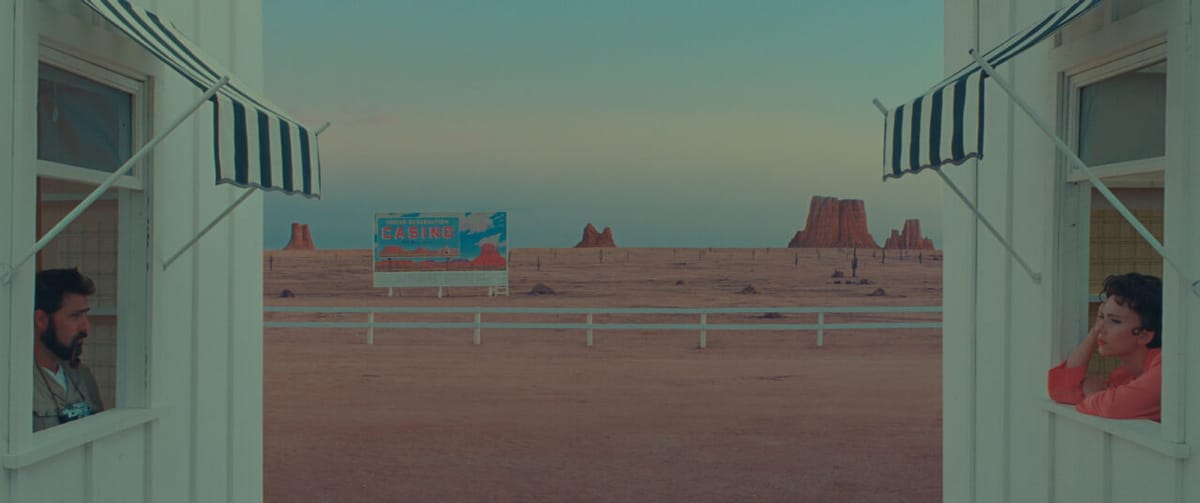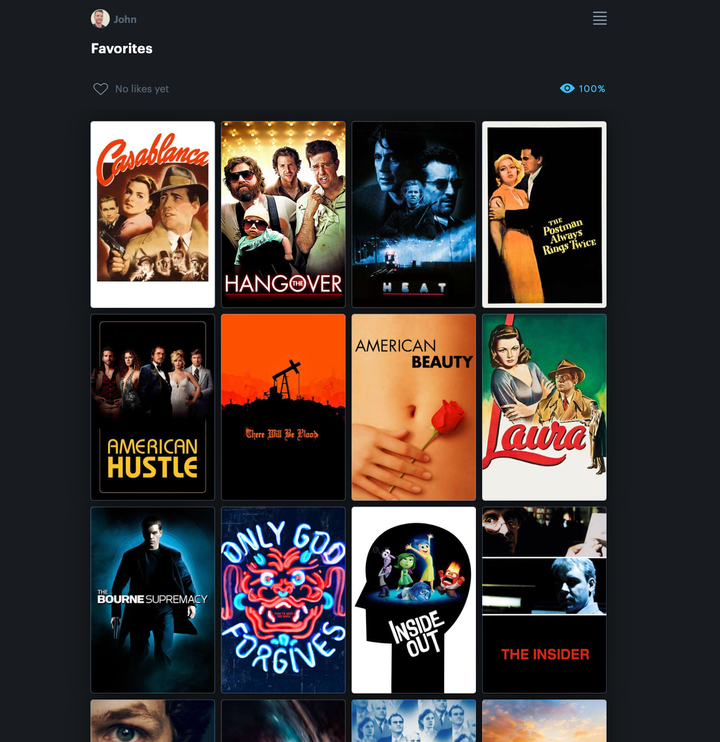Piecing It All Together
I’m enamored with this idea of trying to understand the intention and purpose of an artists work. This is such a fascinating aspect not just of movies but all art.

When you know there’s more to a movie than you can figure out
Over the summer I was fortunate enough to spend my birthday watching Wes Anderson’s Asteroid City in the theater. I’m lucky because his movies typically are released around that time of year, which gives me a great option to do one of my favorite things on my birthday— go to the movies.
And it didn’t disappoint. It was wonderful and whimsical, bringing about a certain satisfaction that it exists in the world and I experienced it. But while it brought immense gratification, it was a challenging viewing at times, even more so than the typical Anderson film. That’s not a gripe though, and frankly, I think is a feature.
To set the context, (with a spoiler warning), Asteroid City is about a group of several families that converge on the small desert town of Asteroid City in the 1950s. While attending a government sponsored smart kid science fair, something mysterious happens that forces their stay longer than expected.
While that is the straightforward main narrative, the film employs a story within a story approach with a larger plot developing a level removed. This larger plot is seemingly the main driver of Anderson’s theme and perspective he’s endeavoring to convey. He actually frames that 1950s narrative as a theatrical play being performed, with the actors and creatives then in a their own world behind the scenes. They debate the play’s purpose while facing their own challenges that tangential relations to the 1950s storyline.
It switches between the narratives at an increasingly dizzy pace that gets very meta and labyrinthine at times. It's not confusing in the linear understanding of what is happening but in perceiving the hidden meaning of each story and finding the correlation between the two.
In short, piecing it all together.
In typical Anderson fashion there is witty, rapid-fire, non-sequitur dialogue sprinting throughout the story. Add in the additional layer of Narrator cutaway segments, it can become an endurance exercise tracking it all.
I was listening to the movie review podcast, The Spoiler Warnings Podcast, discussing the layers of movie and the ability to realize them in the abstract, but not having been able to piece it all together yet, on the first watch. This is how I felt, but I'm enamored with this idea of trying to understand the intention and purpose of an artists work. I think this is such a fascinating aspect not just of movies but all art.
For me, this is the fun of watching performance art. Feeling what the filmmakers want you to feel, intuiting their message. Some times those feelings are clear. Sometime they are opaque, confusing, or complicated. But unwinding those complications is what makes the film or show engaging, leading to a deeper impact.
The draw and attraction to any movie or show is the detective game we all play (both conscious and subconscious). It’s the discovery, the piecing together the clues and revelations of the characters and their decisions.
There’s nothing quite like it when all those pieces click together in the metaphorical puzzle, not just narratively, but the thematic intention.
But what is really interesting is the shows that you get what is generally going on, but feel like there’s more to it.
Asteroid City is jam packed with metaphors and implied hidden meaning. Being constructed with two concurrent storylines playing out in near parallel, you have to track both narratives, but also the layered subtext that connects them together. While each story is interesting on its own, the combination, the dance between the two is what elevates them to a deeper meaning.
Adding layers is what elevates art form and brings the deeper connection. I found myself feeling a similar way after finishing the show Bear on Hulu. It’s a fantastic show that nails its intention and execution.
As the show progresses it slow peals back layer after layers, giving better understanding and context to the characters. The show tees this up from the beginning that there is more happening than our first impressions of the characters allow. As more is revealed, we discover more empathetic, human characters that strives to paint the core theme of the showrunner.
But even as these complexities are revealed, I don’t always know exactly what they are commenting on. I understand what is happening in the scene, but I’m always looking for the greater message, especially in a show this finely crafted. Sometimes I can figure it out. Sometimes I get the concept intuitively, but have trouble articulate it. Other times, I’m left searching without an answer.
Of course I would love to be able to figure out all the mysterious subtext and messaging the writers and creatives are imbuing in their stories, but part of the unspoken contract is allowing the viewer to discover the meaning on their own.
Movie that stick with us, do so for different reasons— the action, the laughs, the characters, the feel. But the most memorable for me are the films with more to discover on each viewing. Revisiting these stories and characters again and again, gaining new insight and understanding of both these worlds and of ourselves is something wholly unique to movies (and a lesser extent, TV).
Playing detective and solving the puzzle is one of the genuine thrills go watching movies.





Comments ()